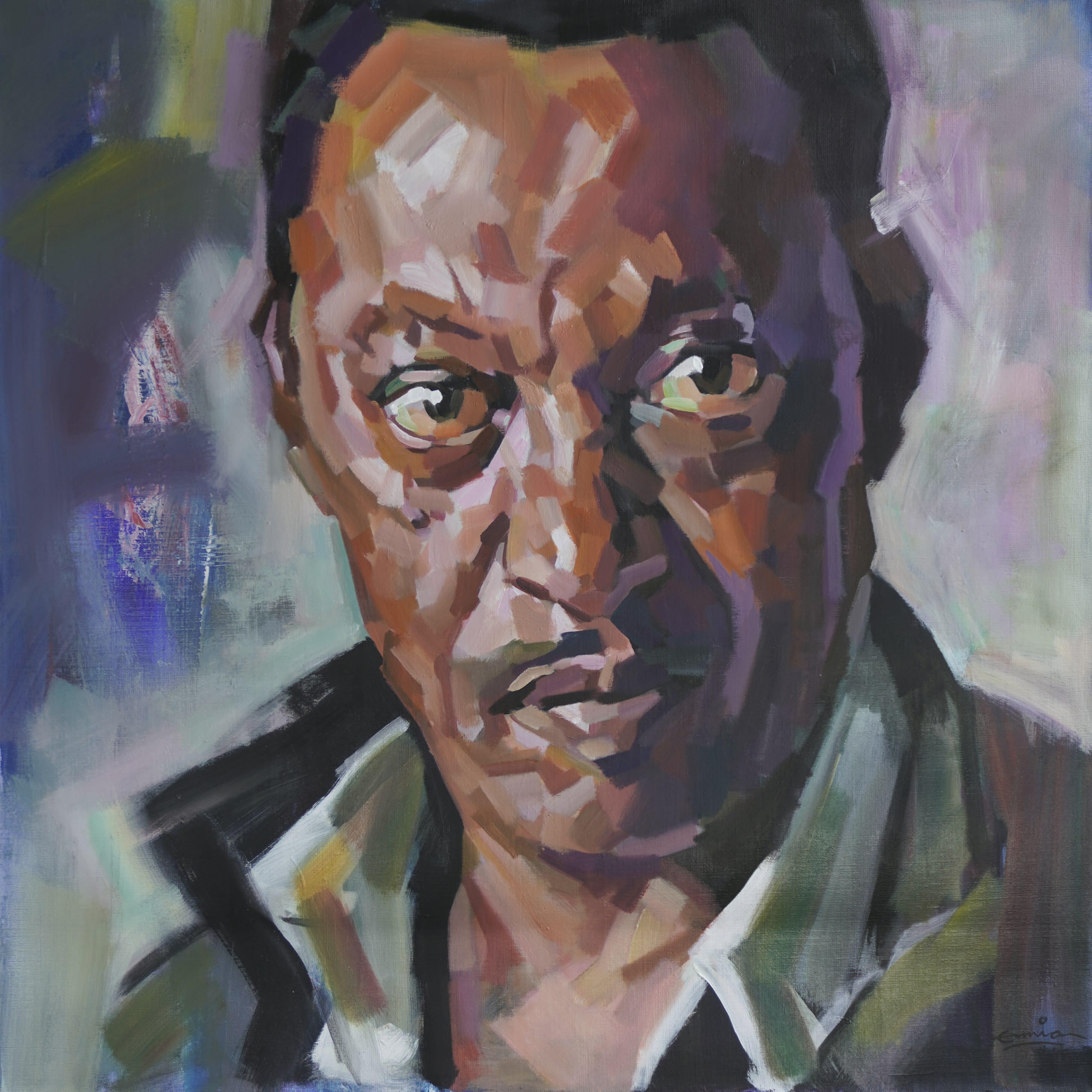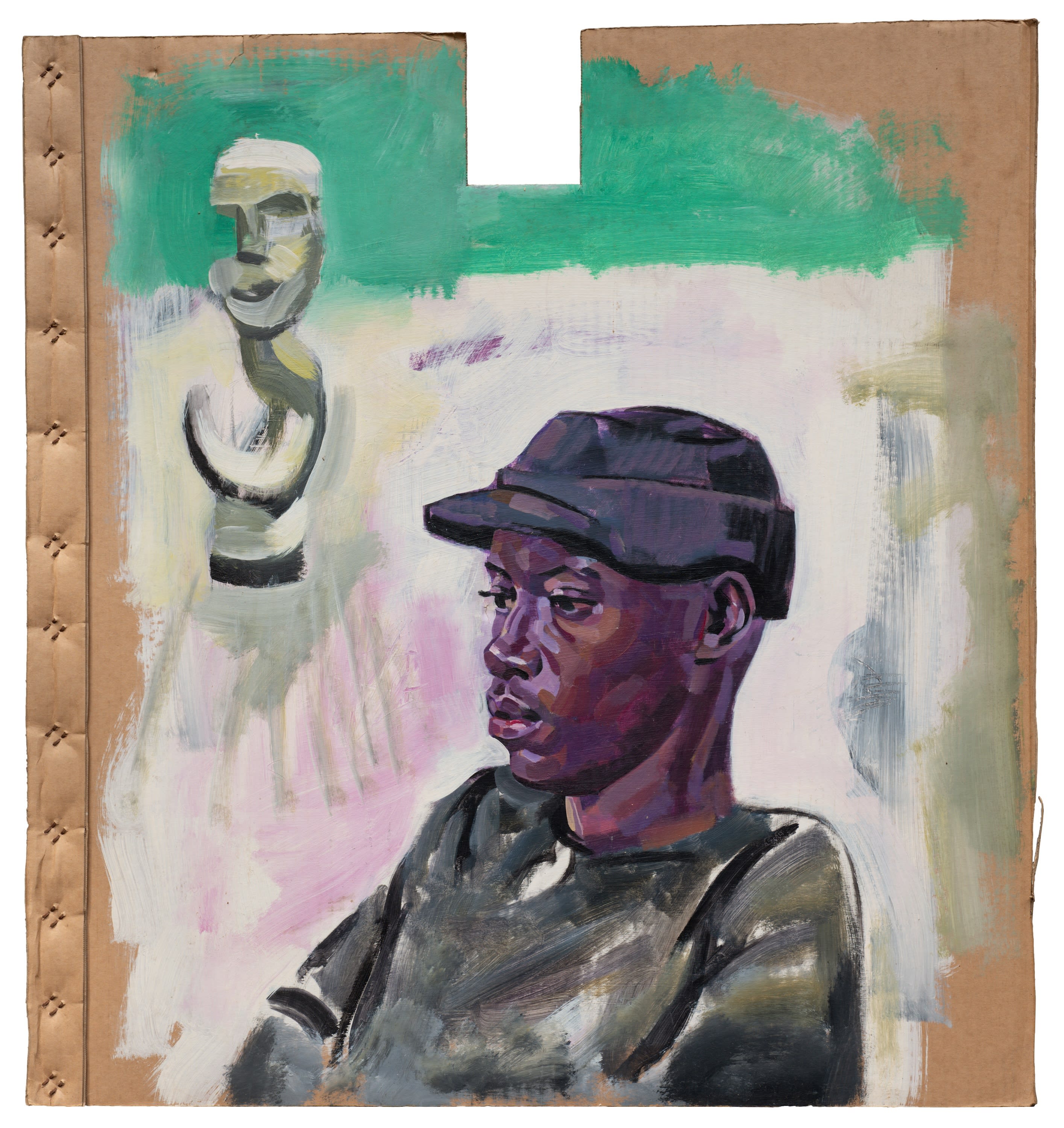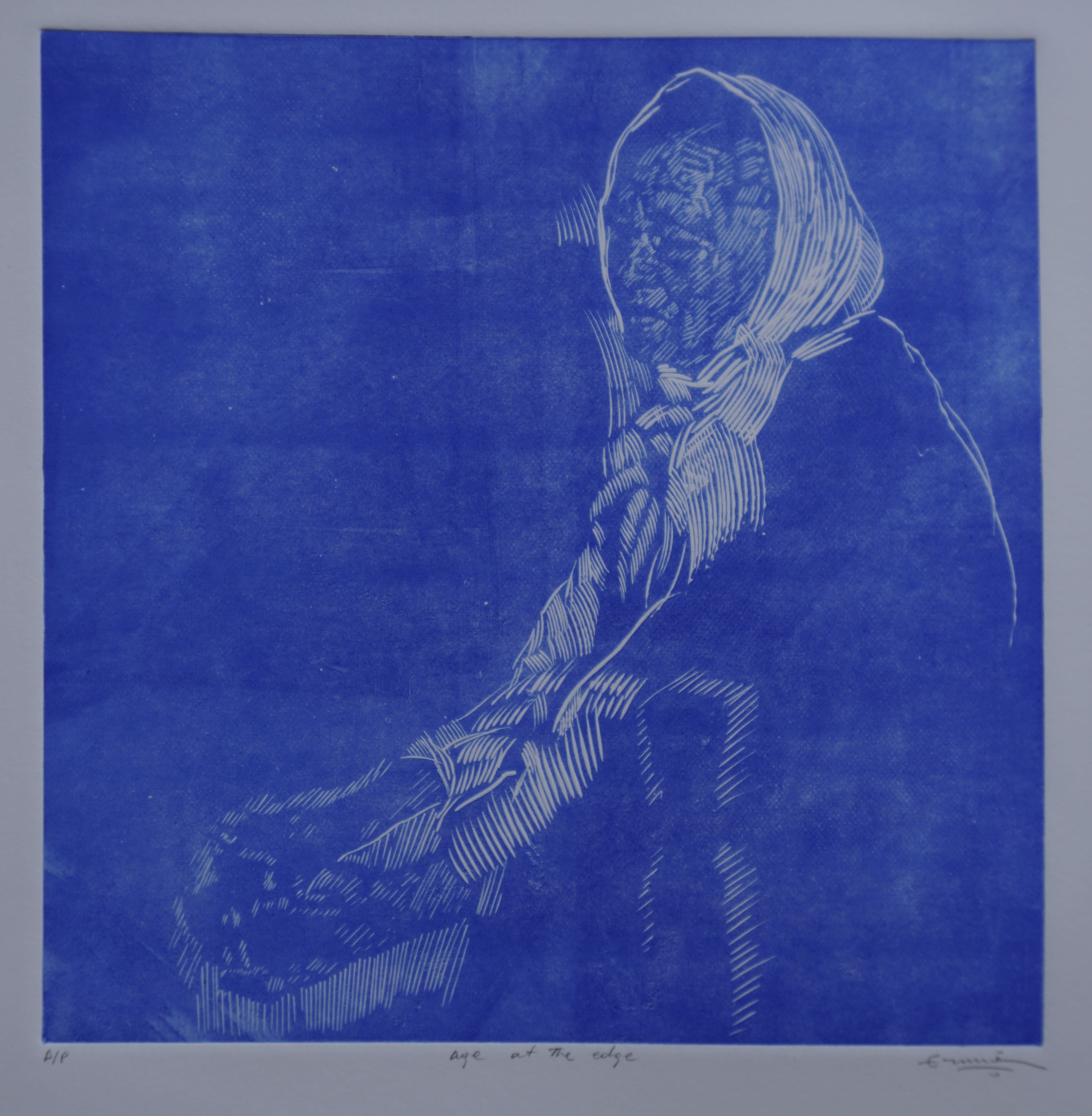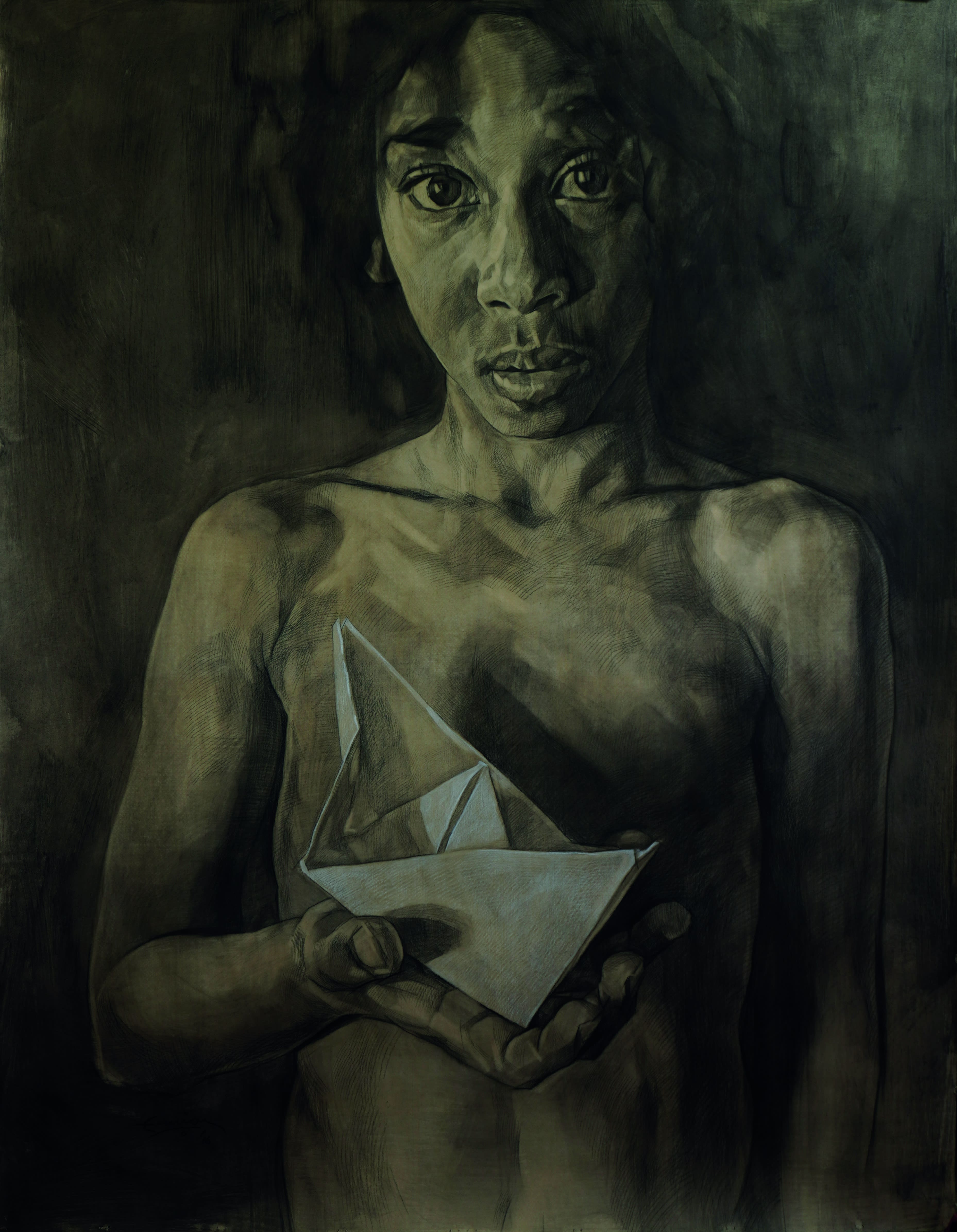
Ermias Ekube, Examining Egg, 2020
Ermias Ekube’s story is a tale of our times. An artist whose life has been shaped by political upheaval and military conflicts, his practice both responds to and is affected by and the brutalities of global history, yet is not defined by it. His is a story that is still very much being written.
Born in Ethiopia, the son of Eritrean parents, Ekube's artistic awakening came from using his metalworker father’s tools to make toys. His prowess as a draughtsperson came to the attention of Addis School of Fine Art which admitted him in his teens; there, he studied at the feet of three great Ethiopian masters and emerged highly skilled in both drawing and painting. His rigorous academic grounding was imparted by Eshetu Tiruneh and Tadesse Mesfin, while Worku Goshu lent his sense of liberation and freedom. Also in Addis, Ekube was introduced to the work of Samuel Beckett and Franz Kafka, both of whom had a profound effect on his thinking; it was during this time, too, that Ekube started writing poetry.

After Eritrea gained independence in 1991, Ekube’s parents returned to Eritrea, and it was during a visit to them in 1994/5 that he was approached by the Department of Culture to establish an art school in Asmara. Founding the school with several other artists, he taught there for a year before returning to Ethiopia. In 1997, he had a successful solo show with Alliance Francaise in Addis (covered by Revue Noire), before finding himself back in Eritrea when the exhibition travelled to Asmara.
Ekube spent 15 years in Eritrea; there, he met his former wife and started a family, taught at the art school he had founded, and continued his own practice in an increasingly hostile environment. As time went on he became trapped by the renewal of war with Ethiopia, unable to return to his birthplace or to secure the work that had been left there. Facing an increasingly repressive regime that was ruthlessly censoring and targeting artists, he finally escaped to Nairobi in Kenya were he was warmly welcomed by the arts community and where, from his studio at Kuona Arts Trust, he generously shared some of his academic arts training with local artists.


While in Nairobi, Ekube and his family were offered the possibility of asylum in Sweden, a country he had little knowledge of. Arriving in Kalmar in 2013, he began a new life with the new identity unilaterally bestowed upon him by the move: “immigrant,” a blank canvas.
Nairobi had confirmed his love of portraiture, and in Sweden Ekube used it to record his children’s development. In his Whose lives matter more? series (2015-2016), he used images of himself and his family to ask questions about the different values put on human lives, in the face of both the tragic events that spawned the Black Lives Matter movement and the grim fate of refugees in the Mediterranean and elsewhere.

Sweden offered Ekube and his children safety and security, and his philosophical response has been to, as he describes it, “turn into a resource” the minimalist and solitary nature of his life there (which remains largely devoid of physical ties to his past).
Confronting the disarming flexibility of memories that we consider fixed, and how those changing memories nonetheless amount to who we are, Ekube’s most recent work represents a conscious effort to diverge from straightforward portraiture, instead constructing compositions where the subject's face is hidden or distorted.
Mirroring the absurdity of elements of his own life story, the mirrors in these works represent the realm of memory — central as both motif and conceit. With their non-sequitur reflections and absent faces, the paintings themselves function as mirrors for our own inconsistent reality.
- Ed Cross
Ermias Ekube is currently at the dot. ateliers residency in Accra, founded by Amoako Boafo.
